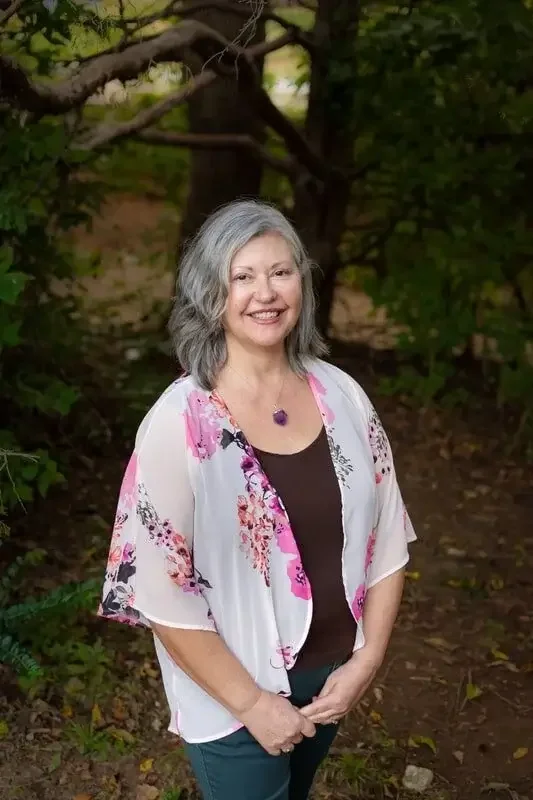
Anxiety Therapy in West Fork, AR
Understanding Anxiety: What It Is and Its Impact
Anxiety is a natural response to stress or perceived danger, often described as a feeling of unease, worry, or fear. While everyone experiences anxiety at some point, it becomes a concern when your feelings are persistent, overwhelming, and interfere with daily life.
Anxiety disorders, which include conditions such as generalized anxiety disorder (GAD), panic disorder, social anxiety disorder, and specific phobias, affect millions of people worldwide. These disorders can manifest in various ways, including psychological symptoms such as restlessness, irritability, and difficulty concentrating.
Understanding your anxiety is the first step towards managing it effectively. Recognizing that anxiety is not just "in your head" but a legitimate condition that needs care from an anxiety therapist in West Fork, AR, like Twila Owens.
The Benefits of Anxiety Therapy in West Fork, AR
Choosing anxiety therapy with Twila Owens offers you numerous benefits that extend beyond symptom relief.
-
By choosing anxiety therapy in West Fork, AR, your feelings and experiences are acknowledged and respected, creating a therapeutic environment where you feel genuinely heard and supported.
This validation can significantly reduce your feelings of isolation and shame often associated with anxiety, fostering a sense of belonging and acceptance.
-
You’re more likely to engage fully in the therapeutic process when you feel connected to your therapist and confident in their intentions.
This strong alliance enhances the overall effectiveness of anxiety therapy in West Fork, AR, as you are more open to exploring your thoughts and emotions and more willing to implement Twila’s strategies and techniques introduced during sessions.
-
Each client's experience with anxiety is unique, and a one-size-fits-all approach is often insufficient.
Empathetic therapists like Twila take the time to understand your specific needs, challenges, and goals, creating personalized treatment plans that address the root causes of your anxiety.
How Twila’s Anxiety Therapy in West Fork, AR, Works
Anxiety therapy with Twila Owens is a holistic approach that focuses on understanding your unique experiences and emotions. Unlike traditional methods that may prioritize symptom management, holistic anxiety therapy aims to uncover the underlying causes of your anxiety and address them at their root.
Throughout the sessions, therapists use various techniques to help you explore your feelings, identify patterns of negative thinking, and develop healthier coping mechanisms. These techniques may include cognitive-behavioral therapy (CBT) and relaxation exercises, all delivered with a compassionate and empathetic approach.
Another important aspect of Twila’s anxiety therapy in West Fork, AR, is the focus on building your resilience and self-empowerment. She works with you to develop a deeper understanding of your anxiety and its triggers, helping you to recognize and challenge unhelpful thought patterns.
Twila Offers Anxiety & Other Therapy in West Fork, AR
Anxiety Therapy
You can manage overwhelming worry, stress, and tension in your daily life by receiving Twila’s anxiety therapy in West Fork, AR.
Insomnia Therapy
Twila’s CBT-I is evidence-based therapy to help you overcome insomnia, improve sleep quality, and restore healthy rest without medication.
Depression Therapy
Twila Owens provides depression therapy that offers a caring space for you to explore the roots of sadness, and negative thought patterns while teaching practical ways to cope and regulate.
Trauma Therapy
By receiving Twila’s trauma therapy, you can heal from emotional wounds rooted in past experiences and rebuild trust in yourself and your capacity to heal.
What to Expect from Anxiety Therapy Sessions
When embarking on the journey of anxiety therapy in West Fork, AR, it’s essential to know what to expect during your sessions with Twila Owens. The process begins with an initial assessment, where she will gather information about your history, current symptoms, and goals for therapy.
As you move forward with your therapy sessions, you can expect a collaborative and supportive environment. Twila will work with you to explore your thoughts, emotions, and behaviors, helping you to identify patterns that contribute to your anxiety. This exploration is conducted with empathy and without judgment, allowing you to feel safe and understood.
Throughout the sessions, Twila will introduce various techniques and strategies to help you manage your anxiety. These may include cognitive-behavioral techniques to challenge your negative thought patterns, mindfulness practices to increase your awareness and reduce stress, and relaxation exercises to promote calmness and relaxation.
Meet Twila, Your Anxiety Therapist in West Fork, AR
My name is Twila Owens, and I offer compassion, confidentiality, and personalized care along with the skills, training, and experience necessary to journey with you to cope, problem-solve, and improve the quality of your life.
With your commitment, we'll work together through anxiety therapy in West Fork, AR, to ease or eliminate symptoms that have interfered with living your life. I work with adult individual clients to address trauma, anxiety, depression, and insomnia.
Frequently Asked Questions about Anxiety Therapy in West Fork, AR
-
Anxiety therapy is a form of mental health treatment designed to help you manage overwhelming worry, fear, or panic. Twila Owens’ anxiety therapy in West Fork, AR, often includes approaches such as cognitive-behavioral therapy (CBT), mindfulness-based techniques, and personalized coping strategies. By working with her, you can learn to identify triggers, reduce symptoms, and regain a greater sense of balance in daily life.
-
If you experience persistent worry, panic attacks, racing thoughts, or physical symptoms like rapid heartbeat and difficulty sleeping, anxiety therapy with Twila may be beneficial. Many people seek anxiety therapy in West Fork, AR, when symptoms begin to interfere with work, school, or personal relationships. She can help determine the severity of your anxiety and create a customized treatment plan for lasting relief.
-
Twila Owens can treat a wide range of anxiety disorders, including generalized anxiety disorder (GAD), social anxiety, panic disorder, phobias, and health-related anxiety. Each type has its own symptoms, but all can be addressed through evidence-based anxiety therapy in West Fork, AR. Treatment is tailored to your unique needs, ensuring you receive the right support for your specific struggles.
-
The timeline for progress depends on you and the severity of your symptoms. Many clients report feeling improvements within the first few sessions, while deeper healing may take several months of consistent therapy with Twila. The key is attending sessions regularly and applying coping techniques learned during anxiety therapy in West Fork, AR, to your daily life.
-
Common approaches Twila uses include cognitive-behavioral therapy (CBT), Prolonged Exposure (PE), and Acceptance and Commitment (ACT). Twila may also integrate holistic methods such as lifestyle adjustments or stress management techniques. She will collaborate with you during anxiety therapy in West Fork, AR, to choose the strategies that align best with your goals and comfort level.
-
Not everyone who seeks anxiety therapy in West Fork, AR, requires medication. Many individuals find significant relief through counseling alone, especially with techniques like CBT and lifestyle changes. In some cases, Twila may recommend working with a trained psychiatrist for additional support.
-
Yes, Twila’s anxiety therapy often addresses the physical symptoms that accompany worry and stress. By learning relaxation techniques, breathing exercises, and body-awareness practices, many clients notice a reduction in physical tension. Over time, anxiety therapy in West Fork, AR, helps you manage both the mental and physical aspects of anxiety more effectively.
-
Many insurance plans do cover mental health services, including anxiety therapy in West Fork, AR, but coverage varies by provider. It’s best to contact your insurance company directly to confirm what benefits are included. Twila Owens also offers sliding scale fees or self-pay options for individuals without insurance.
-
The first step is reaching out to Twila and requesting anxiety therapy services. She offers a free video consultation to discuss your concerns and answer initial questions. Once you book your first session, Twila will work with you during anxiety therapy in West Fork, AR, to set goals and begin building a plan to help you feel calmer and in control.
Taking the First Step Towards Peace
Twila Owens is always available to see if anxiety therapy in West Fork, AR, is the right fit for you. You can reach her or schedule your first appointment by calling, emailing, or filling out the form below.
Email: twilaowens.lcsw@clarity-hope.com
Phone: 479-531-9844











